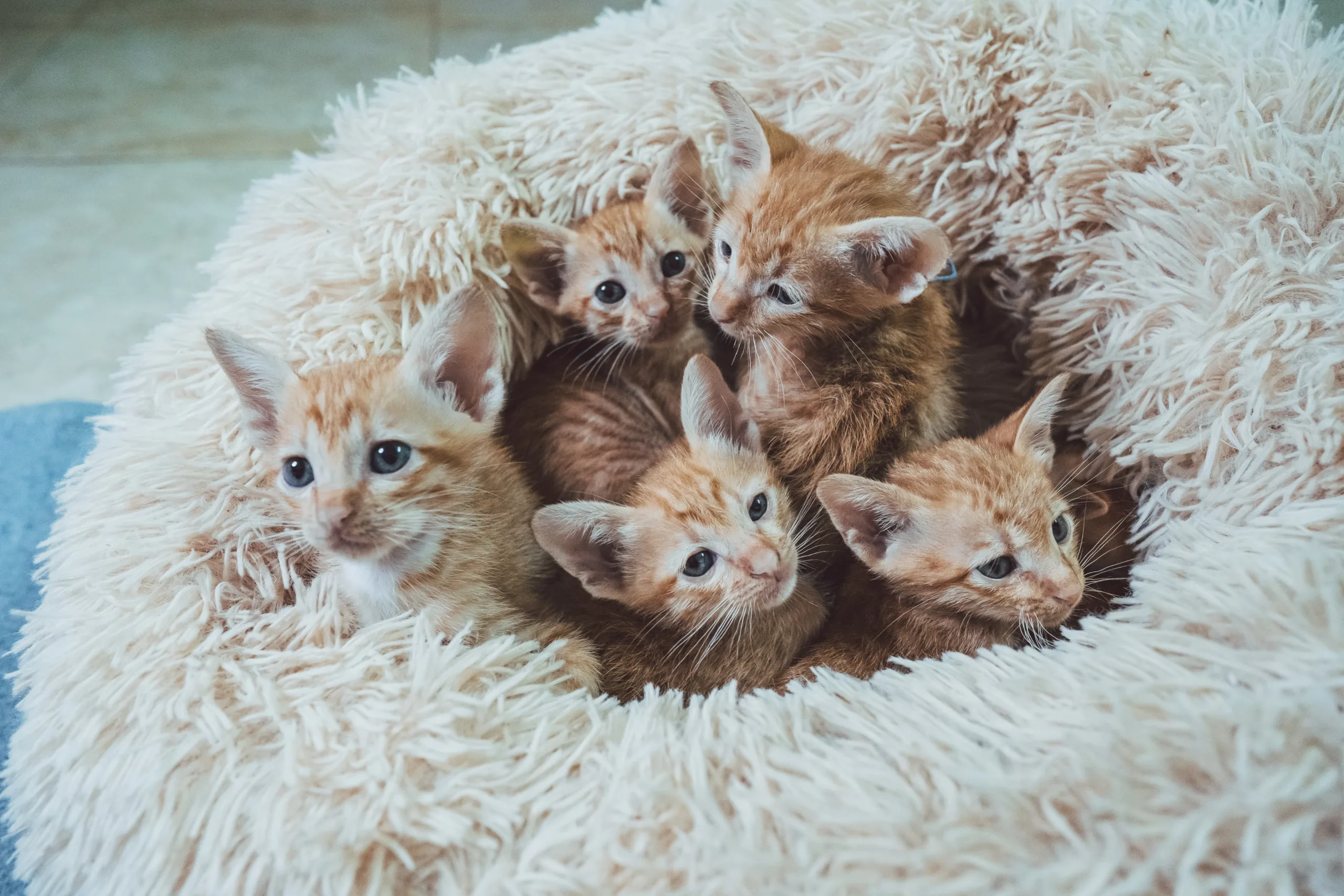How To Breed Cats? Breeding cats is a responsibility that requires careful consideration, knowledge, and dedication. Whether you’re an experienced breeder or a curious cat owner exploring the world of feline reproduction, understanding the intricacies of cat breeding is essential for the well-being of both the cats and their potential offspring. In this article, we’ll explore the steps involved in cat breeding, the factors to consider before breeding, and address common questions related to feline reproduction.
For more about cats click here
How to Breed Cats: The Steps
Breeding cats involves several essential steps to ensure a successful and healthy outcome:
- Selection of Cats: Choose healthy, well-tempered cats with desirable traits for breeding. Consider their lineage, genetic health, and compatibility.
- Health Check: Prior to breeding, have both cats thoroughly examined by a veterinarian to ensure they are in optimal health and free of any genetic or contagious diseases.
- Pre-Breeding Care: Ensure both cats are up-to-date on vaccinations, deworming, and flea prevention. Proper nutrition is crucial for the overall health of the cats and the developing kittens.
- Determining Estrus: Female cats (queens) have a heat cycle, or estrus, during which they are receptive to mating. Watch for signs of estrus, such as increased vocalization, restlessness, and presenting themselves to male cats (toms).
- Introducing the Cats: Carefully introduce the male and female cats in a controlled environment. Supervise their interactions to ensure they are compatible and that mating occurs consensually.
- Mating Process: Cats mate through a series of behaviors that include vocalization, grooming, and copulation. The male cat will bite the female’s neck and mount her for mating.
- Post-Mating Care: After mating, provide the female with a quiet and stress-free environment. Continue to monitor her behavior and health.
- Pregnancy Confirmation: Around three weeks after mating, a veterinarian can confirm pregnancy through physical examination or ultrasound.
- Gestation and Birth: Cat pregnancy lasts approximately 63 to 67 days. Prepare a comfortable and safe space for the queen to give birth, and be ready to assist if needed.
- Kitten Care: Once the kittens are born, provide the queen with a quiet and cozy nesting area. Monitor the kittens’ health and growth, and provide proper care and nutrition.
What Are the Factors to Consider Before Breeding Cats?
Breeding cats is a significant commitment, and several factors should be considered before embarking on this journey:
- Ethical Responsibility: Breeding should prioritize the health and well-being of both the cats and their offspring.
- Genetic Health: Cats should be free from hereditary diseases or conditions that could be passed to the kittens.
- Expertise: Breeding requires knowledge of feline genetics, health, and behavior. Seek guidance from experienced breeders or veterinarians.
- Time and Resources: Breeding, pregnancy, and kitten care demand a significant investment of time, space, and financial resources.
FAQs About Cat Breeding
Q1: How long does it take for cats to mate? The mating process can take a few minutes to an hour, but it might occur multiple times over several days during the female’s estrus cycle.
Q2: At what age can you breed a cat? Cats should not be bred until they have reached sexual maturity, which is typically around six to nine months of age.
Q3: How long is a cat pregnant? Cat pregnancy lasts around 63 to 67 days, with an average of 65 days.
Q4: Is it safe for a 9-month-old cat to have kittens? Breeding a 9-month-old cat is generally not recommended, as she might not be fully physically and emotionally mature.
External Resources for Cat Breeding Information
For further insights into cat breeding, consider exploring these resources:
- The Cat Fanciers’ Association (CFA) – Breeding Pedigreed Cats
- The International Cat Care – Responsible Breeding
In Conclusion
Breeding cats is a multifaceted process that requires a deep understanding of feline health, genetics, and behavior. Responsible breeding prioritizes the well-being of both the cats and their future offspring. Before embarking on the journey of breeding, take the time to educate yourself, seek guidance from experienced breeders, and consider the ethical responsibilities associated with bringing new lives into the world. By approaching cat breeding with care and dedication, you can contribute to the betterment of feline populations and ensure the health and happiness of your feline companions.
